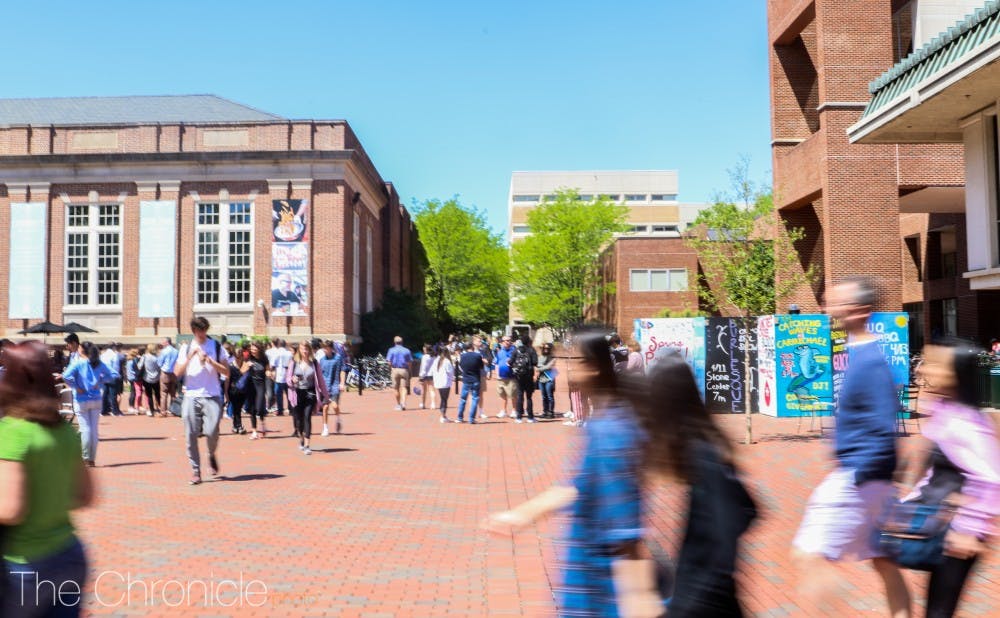Duke has relaxed its indoor masking and surveillance testing policies, acknowledging that the University has transitioned into a new phase of COVID-19 management. Other universities in the area are taking similar steps.
On March 7, Duke rolled back its indoor mask mandate for fully vaccinated individuals in indoor settings. This change excludes in-person classes, Duke transportation and healthcare settings. Duke also announced that mandatory surveillance testing for students will end beginning the week of March 21.
Similarly, the University of North Carolina at Chapel Hill lifted its mandatory indoor mask mandate for most on-campus buildings on March 7. North Carolina Central University loosened its mask policy the same day, while North Carolina State University’s policy was eased beginning Feb. 28. Masks are still required in healthcare settings and on university-owed transportation at all three schools—but unlike Duke, these universities no longer require masks in classrooms.
At UNC, masks are now optional in classrooms, offices, residence halls, campus libraries, athletic venues and performance spaces.
NC State’s policies are similar to those of UNC, but its online hub states that “although face coverings are [no longer] required in most campus spaces, all university community members are encouraged to continue wearing them indoors, especially in instructional settings.”
NCCU implemented an optional masking policy on March 7, excluding healthcare and public transportation settings. NCCU still requires their students to submit daily symptom monitoring and health surveys, regardless if they will be on campus that day.
Duke’s peer institutions outside of North Carolina are also taking steps to ease COVID-19 restrictions on their campuses.
At Harvard University, masks became optional in all indoor and outdoor campus settings on March 14. Exceptions include large indoor gatherings, health care facilities and transportation. However, Harvard’s schools “may continue to require masking in certain settings as they deem appropriate,” according to the university’s COVID-19 information page. Individual professors are also permitted to continue requiring masks in their classrooms.
The University of Pennsylvania made masks optional in indoor spaces other than classrooms, transportation and healthcare settings effective March 15. Masking will no longer be required in classrooms beginning March 28.
Get The Chronicle straight to your inbox
Sign up for our weekly newsletter. Cancel at any time.

